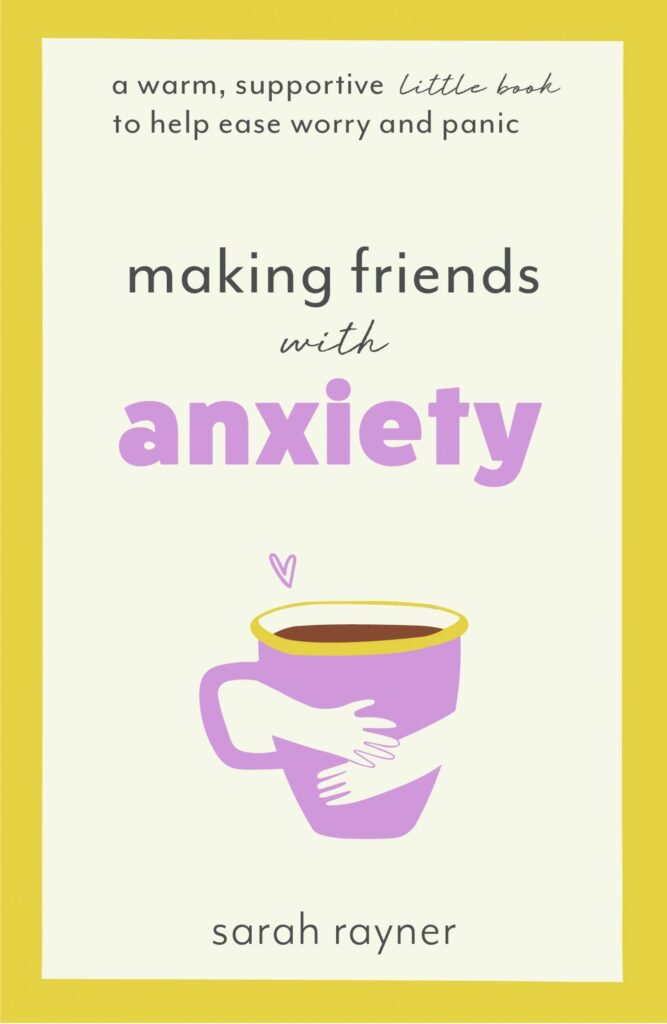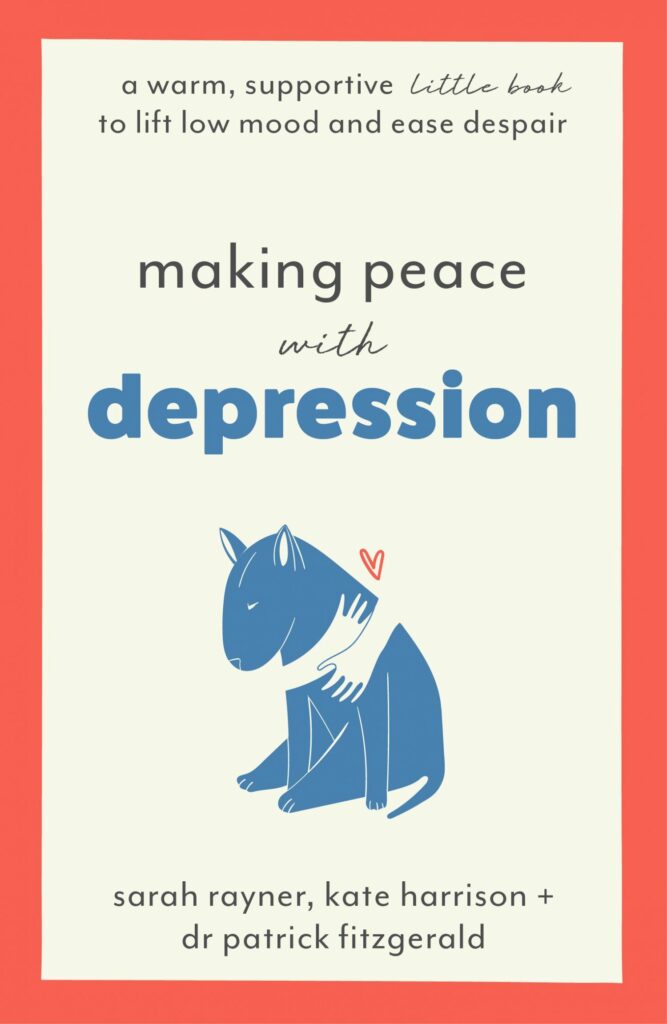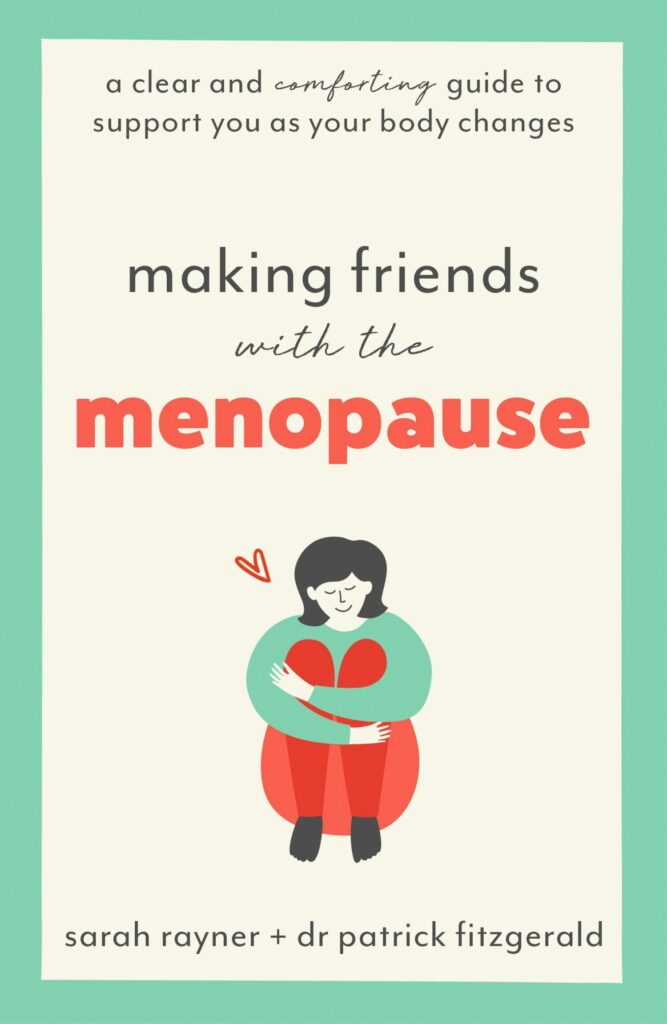SARAH RAYNER’S FAVOURITE MENTAL HEALTH BOOKS
Drawing on her own experiences of anxiety disorder and recovery, Thread explores Sarah Rayner’s favourite mental health books and why they should be on everyone’s reading list.
The Examined Life BY Stephen Grosz
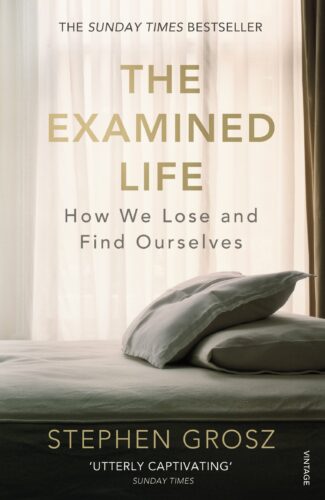
Distilling decades of therapeutic work into a slim volume that reads like a collection of short stories, Grosz offers an intriguing insight into contemporary psychoanalysis. A married father-of-four announces that he is thinking of coming out, aged 71. While this is happening, a woman who has just celebrated her 50th birthday realises a sexy dream that bothered her was about her son. There is anger, self-delusion, lying, feelings of being stuck. Grosz even shows how boredom is worth thinking about. He draws not just on his patients, but literature too. Scrooge shows us how we can’t live a life without loss, a Herman Melville character reveals how ‘we all have a cheering voice that says “let us start now, right away” and an opposing, negative voice that responds, “I would prefer not to.”’ But the real joy is that this is one of the mental health books that is done with such a light touch. It avoids jargon. To have made complex theories so easy to understand is a remarkable achievement.
Sane New World BY Ruby Wax
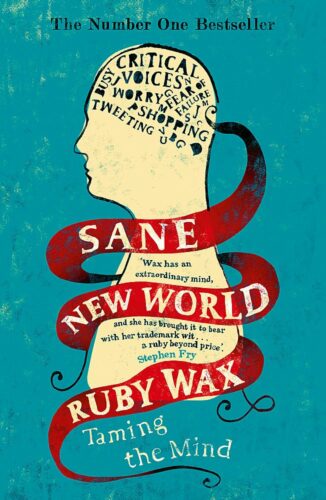
If you’ve not encountered how mindfulness techniques can help with depression before, this book is a good place to start. It explains the concepts simply and wittily, and provides useful exercises at the end to help put the theory into practice.
I found the second chapter superfluous, but I’d still recommend the book overall. Especially if you’re feeling down. The short chapters make it easy to digest when concentration is poor (often a side effect of depression) and Ruby’s willingness to expose her own vulnerabilities makes it feel as if you’re in the company of a good friend.
There are other more fulsome books on mindfulness out there (I’d recommend The Mindful Way through Depression by Williams, Teasdale, Segal and Kabat-Zinn) and there are more searing accounts of going through breakdown too, but they don’t detract from this book, which, as a cross between the two genres, aims to do something different.
Moreover, because Ruby Wax is a household name, there’s every chance Sane New World will find its way into the hands of people who might not otherwise read about depression or any other mental health books. That, for one, can be no bad thing. I have enormous respect for Ruby and admire what she’s done to raise awareness of mental illness. That takes even greater courage than stand-up comedy. I’m sure I’m not alone in being grateful for her bravery.
Sunbathing in the Rain BY Gwyneth Lewis
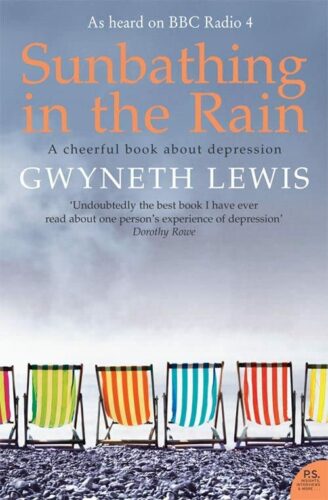
Firstly, let me be clear: there is heaps about this book which is wonderful. The practical hints, the tone of voice and language, the short digestible paragraphs, and many, many of the insights. So I would not wish to put anyone off reading it at all. I found it sympathetic and uplifting, which, when you’re in the throws of depression, are sensations you want to hold onto for as long as you can. One of the most painful aspects of depression is the cycle of self loathing. The notion that depressions are learning experiences is extremely useful. When you’re beating yourself up endlessly, this suggestion is a breath of fresh air. This book should be read for that reason alone.
However, to my mind there is one omission – it fails to take account of the enormous and real pressure many, many sufferers find themselves under to get well in a specific time frame in order to earn money and continue working. This can mean the cycle of depression is much harder to break. Not very many of us are able to take two years ‘out’ and just be. Unless I missed something, Lewis never mentions this need to earn one’s keep. I can only assume she had some kind of outside financial support, masses of savings or a very sympathetic employer. She certainly has an incredibly supportive partner. Many sufferers are not blessed with one of those either. So in this regard she is fortunate and for some readers in the throws of depression her experience might seem at one remove from their own.
My conclusion: read it, please. But do so alongside Sally Brampton’s Shoot the Damn Dog. Brampton’s personal experience of depression was deeper and more agonised. Tragically, she died in 2016.
Making Friends with Anxiety
Sarah Rayner
Does anxiety have a hold on you and your life? Do panic and worry tend to dominate every moment? You’re not alone – Making Friends with Anxiety is here to help.
-
Ebook
-
Audiobook
-
Paperback
